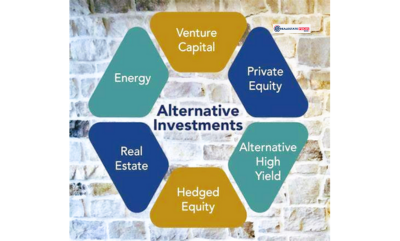

Real Estate Stocks and Investment Buck Trend Amid Stock Market Decline
Real estate stocks are experiencing unexpected growth even as the broader stock market struggles. While many industries are facing significant losses, real estate companies are showing strong performance. This has attracted the attention of investors who are interested in opportunities in this sector, despite the overall market decline.
The stock market has recently faced challenges, with many sectors such as technology and energy seeing large drops in stock prices. However, real estate stocks have managed to defy these trends. Some real estate stocks are even experiencing gains during this period of uncertainty. This has raised questions about the factors that are driving growth in the real estate sector, despite the struggles in other parts of the economy.
One key reason for the strength of real estate stocks is the ongoing demand for housing. While other industries may be impacted by the market downturn, people continue to need homes. The consistent need for housing and real estate helps support companies in this sector.
This demand provides a steady stream of business for real estate companies, allowing their stock values to remain relatively stable, even during times of market uncertainty. Low interest rates are another important factor contributing to the strength of real estate stocks. When interest rates are low, it becomes more affordable for people to borrow money for home purchases.
This encourages more homebuyers to enter the market, which in turn drives the demand for housing. As more homes are bought, real estate companies benefit from increased sales and transactions, which boosts their stock performance. Investors are taking advantage of this trend, helping to support the growth of real estate stocks.
The rental market is also playing a significant role in boosting real estate stocks. In many urban areas, housing prices have become unaffordable for some buyers, leading more people to rent instead of buy. This trend has led to an increase in demand for rental properties.
Real estate investment trusts (REITs), which focus on owning and managing rental properties, have seen their stock values rise as a result. The growing rental market is providing a steady income stream for these companies, making them attractive investments for those looking to gain exposure to real estate.
Real estate has long been seen as a more stable investment option compared to other sectors, especially during times of market volatility. As stock prices in other industries fall, investors often turn to real estate as a safer place to invest.
Real estate offers long-term value and consistent income potential, making it an appealing choice when other investments seem uncertain. This shift in investment focus has contributed to the rise in real estate stocks, as more investors see it as a reliable option for their portfolios.
Some real estate companies have also adapted well to changing market conditions. These companies have modified their business models to meet current demands, such as focusing on affordable housing or properties in high-demand locations.
By adjusting their strategies to align with market trends, these companies have been able to perform better than others. Their strong performance has attracted more investment, further boosting the growth of their stocks. Despite the broader challenges in the stock market, the real estate sector is benefiting from its own set of unique factors.
The continued demand for housing, coupled with low interest rates and rising rental demand, provides a solid foundation for real estate companies. Investors are capitalizing on these factors, helping to drive up stock prices in the real estate sector.
Some real estate stocks are even exceeding expectations, providing higher returns for investors than many had anticipated. With the market instability, these returns have been particularly encouraging for investors seeking safer and more stable options. Real estate is seen as a reliable investment choice during uncertain times, and many are choosing to invest in real estate stocks as a result.
However, the growth of real estate stocks may not last indefinitely. If economic conditions change, such as interest rates rising or a slowdown in the economy, the demand for housing could be affected. A decrease in housing demand could lead to a slowdown in real estate stock growth.
Investors will need to stay informed and adjust their strategies accordingly to account for potential changes in the market. For now, real estate stocks are performing well in the face of stock market struggles. The sector continues to show resilience, thanks to consistent demand for housing, stable interest rates, and growing rental demand.
As long as these factors remain in place, real estate stocks are likely to continue their upward trajectory, offering solid opportunities for investment. The overall strength of the real estate market is helping companies in this sector thrive, even as other industries face challenges.




































